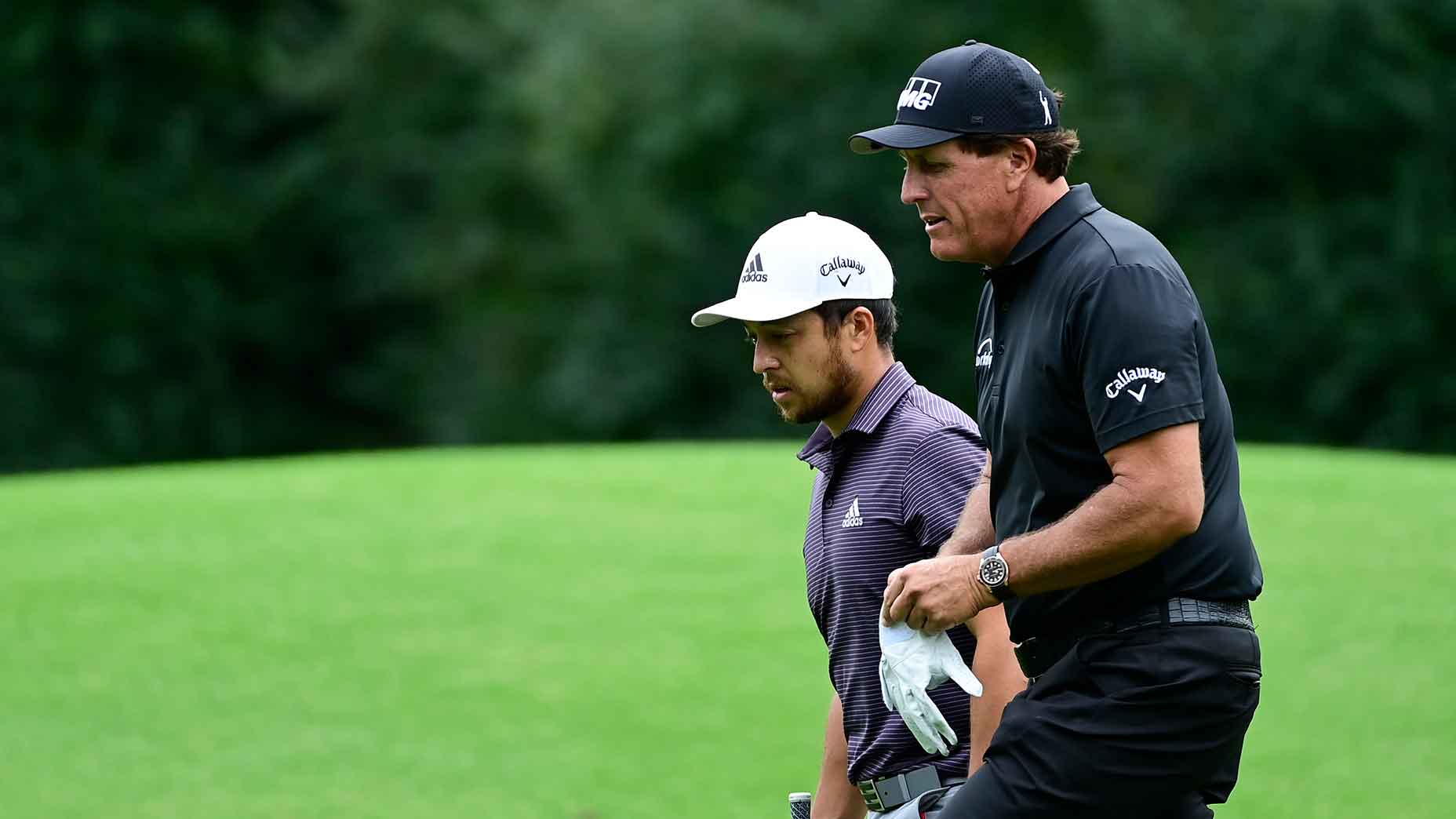Even some seven months later, the Phil Mickelson-PGA Tour saga continues to mystify Xander Schauffele.
The Olympic gold medal winner (and PGA Tour mainstay) found himself stuck between a rock and a hard place when Mickelson infamously accused the Tour of “obnoxious greed” back in January, igniting a fight that has spanned the majority of the year and included Mickelson’s unceremonious defection to LIV Golf and subsequent multi-year suspension from the Tour. Here was Mickelson, one of Schauffele’s mentors, friends and practice partners, battling against Schauffele’s place of work, the PGA Tour, the platform that had allowed Schauffele to earn millions and make an international name for himself.
In recent weeks, that awkwardness has only grown more pronounced. First, there was the announcement from the PGA Tour that outlined wholesale format and structural changes in order to better compensate its top players. The changes include expanded bonus pools and high-purse “elevated” events for the game’s top players, and were made with the no-so-subtle intention of slowing the bleed of talent following Mickelson from the PGA Tour to LIV. Then, there was Mickelson’s victory lap press conference at LIV Boston, in which he lauded players for achieving the changes he’d fought for, and the PGA Tour for “magically” finding the money to fund those changes.
On this week’s episode of “The Drop Zone,” Schauffele spoke for the first time about his perspective from the middle of the fray, and about making sense of Mickelson’s “success” (or lack thereof) in reaching the change he so desired. A wide-ranging interview encompassing the entire PGA Tour season eventually landed, inevitably, on Mickelson.
“I think recent articles come out, where people were like, ‘well he wasn’t too far off, he just said some unsavory things,'” Schauffele said, referring to Mickelson’s other now-infamous interview with The Firepit Collective‘s Alan Shipnuck, in which he called LIV Golf’s financiers ‘scary motherf—–s.’
“It’s unfortunate that he wasn’t able to get his point across or his point was taken kind of aggressively. Not out of context, but without him really knowing. It’s sort of every player’s nightmare, I guess — that’s why we get scared to talk to you guys.”
While Schauffele understands Mickelson’s plight (Phil claimed he believed their conversation was off the record, a statement Shipnuck disputes), he’s not quite sure he reaches the degree of feeling sympathy for Phil.
“He said what he said, so in terms of feeling bad for him, it’s hard,” Xander said. “But at the same time, whether he was emotional and behind closed doors, that’s one thing.”
Still, Xander says, even if Mickelson’s methods were unsavory, it’s hard to argue with their effectiveness. Phil sought to improve the conditions for the sport’s top players, and to that degree, he was successful.
“He knew it would take something drastic, and he had to pick which side of the fence he wanted to be on,” Schauffele said. “He’s been such a staple on the PGA Tour and such a staple in our game of golf, that it’s… I don’t hold anything against him or think of him much differently. Regardless of what people have written about him.”
The irony, of course, is that of all the people to bear the fruit of Phil’s labor, Phil himself won’t be one of them.
“The main points he was trying to make, and what he really wanted in his vision, you know maybe we’re living it out now on the PGA Tour,” Schauffele said. “It’s unfortunate he isn’t a part of that, because this is what he so wanted.”
To hear the rest of Schauffele’s Drop Zone interview, including his thoughts on the whole of LIV Golf, check out the link above, or download the episode on Spotify here or Apple Podcasts here.
